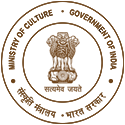The Samiti in association with the Department of Education, Lady Irwin College, University of Delhi organised a national webinar of June 1, 2020 on “Handling Classroom Conflicts Using Non-Violent Communication”. The chief speakers in the webinar were Director GSDS, Shri Dipanker Shri Gyan and Programme Officer GSDS Dr. Vedabhyas Kundu. The organising committee members of the webinar included Dr. Renu Malaviya; Ms. Rashi Dubey Mishra; Dr. Vinod Kumar Kalra; Dr. Suraj Kumar and Dr. Stuti Srivastava. 155 participants took part in the webinar.
Giving his introductory remarks, Director GSDS spoke of communication management and role of future teachers in shaping the lives of the future citizens of the country. He addressed the issue of conflict management in the classrooms and said that teachers handling a large number of students together find it difficult to engage with one and all, but they are the best mentors to bridge the communication gap by involving the students in positive communication. He also underlined the Gandhian concept of conflict resolution, which he said is applicable to all forms of conflict resolution.
Giving the key note address on the subject of handling classrooms using non-violent communication (NVC), Dr. Vedabhyas Kundu explained the elements of NVC with specific reference to the Gandhian principles of NVC. While speaking about the disruptive behaviour of students in classroom, he underlined that breakdown of communication could lead to problems and said that the teachers should develop the ingenuity of communication to handle such students who present complex dynamics in the classroom. He also stressed on the need to develop a communication ecosystem in the classroom.
While emphasising on the Gandhian principles of NVC, Dr. Kundu asked the future teachers to develop empathy towards the students and avoid stereotype behaviours. He said there is a need to create avenues for greater dialogues, which will develop a sense of belonging. He asked the future teachers to avoid retributive attitude towards the students for either their lack of interest or disruptive behaviour. He further said that avoidance or neglect only aggravates the problem and therefore suggested teachers should have a positive and collaborative role in handing their students which in turn will build relations and thereby help in instilling the importance of interdependence with compassion towards nature and all other living beings amongst the students. “Connecting with the needs of others and understanding student-teacher, student-student relationship and resolving their differences is the key towards transforming aggressive or disruptive behaviours into more constructive work. This helps in developing a sense of belonging”, said Dr. Kundu.
The question answer session saw teachers engaging in a myriad discussion on attitude and behaviour of students ranging from their being attention seekers to use of abusive language and also parental behaviour with teachers. Dr. Stuti Srivastava, Ms. Varsha Rani, Ms. Rukshaar Siddiqqi, Prof. Priyanka, Ms. Chandrika Sanwal and others interacted with Dr. Kundu. It was felt that the ingenuity of teachers in connecting with each student individually will also develop in them a sense of gratitude and respect, which will lead them forward. Dr. Kundu also pointed that media literacy education for each teacher is very important.
Handling Classroom Conflicts Using NonViolent Communication A National Webinar
Webinar












